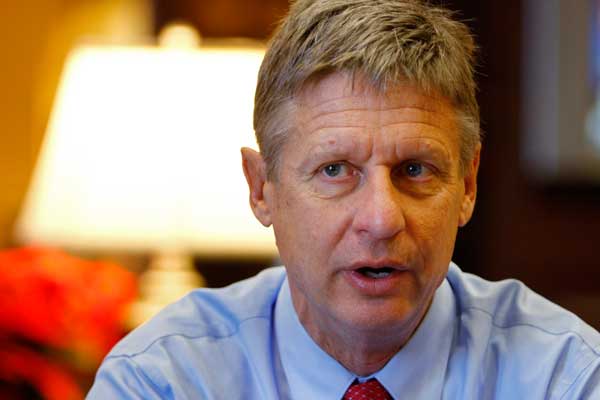PA Libertarian Party One Step Closer To Ballot Access

Credit: investors.com

The fight for third party candidates to gain ballot access can be a difficult one, especially when met with fierce opposition. After a hard fought legal battle, the Libertarian Party in Pennsylvania is one step closer to gaining access to the state’s general election ballot in November.
In August, the Pennsylvania’s Republican Party challenged signatures submitted by Libertarian presidential candidate Gary Johnson to get on the state's November ballot. Many Republican voters are concerned that if third party candidates, like Johnson, are allowed on the presidential ballot then it will take votes away from Mitt Romney.
Gary Johnson’s campaign reported obtaining over 49,000 signatures, which would be well over the required amount to gain an equal spot on the presidential ballot next to Barack Obama and Mitt Romney. In order to qualify for ballot access in Pennsylvania, third party candidates must submit roughly 20,000 signatures. The two mainstream parties only need 2,000 signatures.
The GOP has aggressively sought to limit third party access in the state. The Constitution Party withdrew Virgil Goode’s name from contention. The party had collected 35,000 signatures, but was informed that it would have to cover all legal fees in the event the Republican Party challenged Goode’s place on the presidential ballot. This motivated the party to bow out.
“The two major parties have a lot of money they can use to maintain the status quo,” said senior adviser to the Gary Johnson campaign Ron Nielson. “We’re trying to give the voters a choice between the policies of Obama and Romney, and we’re going to fight to stay on the ballot because we think the voters deserve to have that choice.”
Last week, three judges for the Commonwealth Court ruled in favor of Gary Johnson’s campaign. The court upheld 9,000 signatures challenged by Republicans even though the addresses did not match voter registry records. Despite what the campaign initially claimed, reports indicate that Johnson needs 600 signatures to be eligible for the November ballot.
It was a solid victory for the Libertarian Party, but it was also a costly one. These legal challenges require time, energy, and financial resources. The system in Pennsylvania significantly hinders any chance third parties have at orchestrating efficient campaigns. Instead of allocating resources to campaigning, third party candidates must concentrate what they have on battling legal challenges.
“It is a tragedy that we have to go through this process,” Tom Stevens, chairman of the Pennsylvania Libertarian Party Chairman, said. “It costs hundreds of man-hours and expense of funds that limit our ability to campaign.”
Currently, the only third party candidate on the presidential ballot in Pennsylvania is Green Party candidate Jill Stein. Neither the Democratic Party nor the Republican Party have challenged her name being on the ballot, but the Republican Party doesn’t view Jill Stein as a threat to their votes. If anything, Stein would attract voters who might have otherwise voted for Barack Obama if she was not in the race.
Third party candidates always face an uphill challenge. The fight for ballot access is the biggest hurdle to overcome, but a candidate could easily exhaust all of their capital just to be in the general election and there are still more challenges to overcome. Advocates of free elections praise the Commonwealth Court’s decision, but these cases highlight a real need for electoral reform in states like Pennsylvania.



